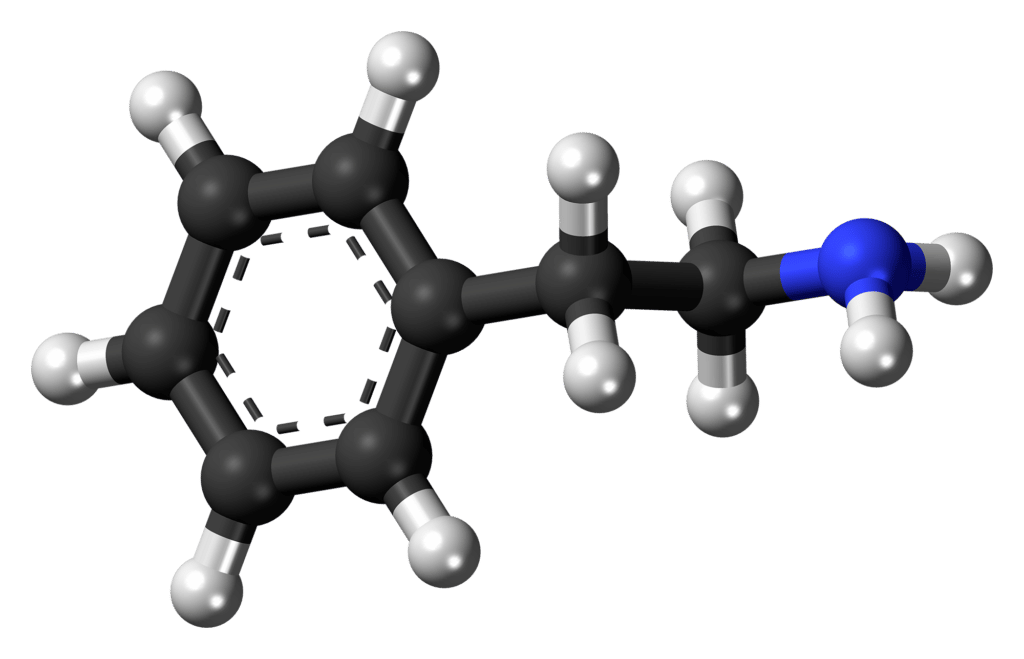When David Heldreth of Panacea Plant Sciences decided to stand up to the DEA in support of psychedelics, he had no idea how long and strange of a trip it would be…

You may have seen recent headlines regarding a half-baked effort by the DEA to add five unique tryptamine analogs to Schedule I of the Controlled Substances Act (CSA).
These five psychedelic compounds – utilized almost exclusively for research purposes – are 4-OH-DiPT, 5-MeO-AMT, 5-MeO-MiPT, 5-MeO-DET, and DiPT.
Had they been successfully added to the most restrictive level of the CSA, not only would the possession or sale of these substances have become highly illegal at the federal level, but current research into their potential therapeutic efficacy would have come to an immediate halt here in the U.S. as well.
Seeking any opportunity to appear still relevant, the DEA targeted these uncommon tryptamines at an odd time considering that these compounds have been on their radar for at least a decade.
It is crucial to remember that any government agency – the DEA included – is made up of a bunch of ordinary people and people make mistakes all the time. Sometimes those mistakes are rooted in an honest effort to “do the right thing”. Other times, those mistakes are fueled by spite.
What truly motivated the decision makers at the DEA to try to criminalize a handful of relatively unknown psychedelics in 2022?
We may never really know, but if they thought the obscurity of these substances would provide enough cover for them to sneak in a flimsy win in their failure of a drug war, well, that was definitely a mistake.
The DEA Drags Its Feet, Panacea Pounces
Once the agency announced its intent to add MORE substances to Schedule I of the CSA, pushback from the public and from the U.S. research community was immediate, rocking the DEA back on its heels as the agency vowed to slow down its crusade and take public comments on the matter before proceeding any further.
Next, a DEA administrative law judge ordered the agency to hold public hearings on the proposed ban.
In July of this year, the DEA announced the scheduling of those hearings, originally planned to be held this week on August 22nd. Before July was over, however, the agency retreated from that announcement, canceling the hearings and at least temporarily shelving its plans to ban the five compounds in question.
That sure de-escalated quickly!
The DEA went from screeching about “a high potential for abuse, no current medical use in treatment in the United States, and a lack of accepted safety for use under medical supervision” to “What hearings? We haven’t heard of any hearings…” real fast.
For now, the DEA has punted these five psychedelics back to the Department of Health and Human Services (HHS) and the NIH to determine if any or all of them have any potential therapeutic value, or if they truly deserve to be banished from research labs nationwide and locked away on Schedule I of the CSA.
We don’t have very high hopes that the folks at HHS will see the light on psychedelics anytime soon, but the good news is that this review that they have been tasked with will not be completed anytime soon either.
A lot can change in society and in its government (and in a lab environment) in the years that HHS will be poking around at these substances, and as recent years have shown, change tends to be good after decades of senseless prohibition.
It is also highly unlikely that the DEA’s tail-tucked retreat from this fight was the result of some epiphany about entheogens or sympathy for psychedelics. No, it was good old-fashioned grassroots advocacy that won that battle before a shot was even fired.
When the DEA asked for public comment on their proposal to ban the five tryptamines at issue, their offices were flooded with nearly 600 comments, almost all in strong opposition to the continuance of the War on Drugs and further psychedelic prohibition.
This sentiment is only getting stronger, and the inclusion of such a public response in any decision-making process only makes the DEA’s case weaker. So, it should come as no surprise that the agency often bends the law, and occasionally even breaks it, when it comes to including the inconvenient opinions of taxpaying American citizens in their prohibitive plots.
For example, the agency made headlines in 2021 with an announcement that they would be seeking and gathering elevated amounts of entheogens and psychedelic substances for their own research. Again, public commentary was requested and contact information and a feedback portal on their website were promised.
David Heldreth of Panacea Plant Sciences, a former journalist himself, noticed that those promises never materialized, taking note of the agency’s lackadaisical regard for its own basic procedures.

He then reached out to the powers that be at www.regulations.gov, asking why the public comment portal was not open. They pointed right back at the DEA, saying it was up to the agency to ‘flip the switch’ to open the portal.
Heldreth went back to the DEA with that information and was promptly ignored. So, he wrote a press release putting them on blast.
His PR essentially demanded that the DEA make their comment portal live immediately and that they extend the window for comment submittal by two weeks to make up for the time when the portal was inexplicably unavailable to the public.
In the end, the DEA did everything Heldreth demanded.
As a result, David Heldreth and Panacea Plant Sciences became a sour taste in the mouths of those in charge.
Thanks to Panacea Plant Sciences, the DEA Has to Follow the Law, Too
Representing himself and Panacea without a lawyer, and with one victory notched on his belt already, Heldreth was ready this time around when the DEA targeted the very tryptamines that he and his team were focused on researching.
This timing is interesting, to say the least.
On December 13th of 2021, Panacea Plant Sciences provided to the DEA a list of psychedelic substances that were legal in Canada and unscheduled here in the U.S. at that time. That list included the five tryptamines that would eventually be targeted by the DEA.
Panacea was importing a significant amount of these compounds into the U.S. from their Canadian partners for research purposes and simply wanted the DEA to affirm – in writing – that the transfers were federally legal.
Panacea never got that permission slip.
Instead, two weeks after Panacea made its request, the DEA announced its plan to ban five tryptamines from that list. Such a move that would cripple the efforts of Panacea – and other research facilities like them – and the emotion-driven ordinary people at the DEA knew it.
Again, just look at the timing here.
The DEA was well aware of these compounds way before Panacea put in their request to clarify their legality. In fact, this process to prohibit these specific tryptamines began in 2010, and resurfaced again in 2012, failing both times. But we are supposed to believe that it just so happened to come to a climax a decade later, within weeks of one of their biggest headaches asking for them to officially go on the record about it?
Sounds pretty petty, right?
Perhaps you are thinking that surely a beast the size of the DEA cannot and would not focus its collective spite on one man. Think again.
What came next has been outlined above and reported on extensively.
- The DEA announces its intent to prohibit five new psychedelics.
- The American public and the American research community revolt.
- The DEA announces that they will take public comment.
- They delay that process as much as possible and then get buried in commentary opposing their plan.
- Based on a filing submitted by David Heldreth and Panacea, a DEA judge rules that a public hearing must take place if the DEA wants to proceed.
Knowing full well that the DEA has a long track record of ignoring all the rules surrounding public notification of such a meeting, hoping beyond hope that nobody will show up and roast them, Heldreth was ready to once again call them out for their negligence.
Sure enough, the agency released a public announcement referencing the upcoming hearing, but for months it failed to inform the public of the exact date and time of the hearing – details mandated by the Administrative Procedure Act.
Heldreth took them to task in court once again and the judge agreed with him, ordering the agency to update their announcement – an act that still took weeks to properly complete.
Forever a thorn in the side of the DEA, Heldreth also took note of a curious comment by the lawyer representing the agency in these proceedings which seemed to imply that there was some collusion between the head of the DEA and departments below, all of whom are intended to remain unbiased in their decision making.
Between the months-long delay in properly publishing the public hearing announcement, and then the allegations of collusion, the judge overseeing the proceeding agreed with Heldreth that a fair public hearing would be all but impossible to convene.
The DEA coincidentally explained that the lawyer had simply “misspoke”, and that the Administrator was still without bias on the case. Sort of like how they like to say “technical difficulties” when their public comment portals are mysteriously offline.
Heldreth, now becoming well-versed as a self-taught, unrelenting advocate for what’s right, filed a new motion that the proposed public hearings should be canceled and the process to prohibit the five tryptamines should be halted.
He didn’t stop there, though. Citing the allegations of departmental tampering by the head of the DEA herself, Heldreth demanded that no laws be passed concerning these substances for a minimum of four years, allowing for the potential of a new presidential administration and a newly appointed DEA Administrator.
Lastly, Heldreth demanded that a new HHS/NIH study be commissioned to determine the potential therapeutic efficacy of these five substances – a process sure to take years, buying researchers and activists more time to make their case.
Before the judge could agree with Heldreth… again… the DEA took its ball and went home, releasing a new public statement announcing that the public hearings were “moot”, canceled because the DEA was no longer targeting the five tryptamines for prohibition.
Instead, they are doing exactly what Heldreth demanded and kicking it back to federal researchers for further analysis. Only, now they can pretend they did it themselves instead of being forced to do it by a dude who studies psychedelics and represents himself in court. But we know the truth.
So, was it a win for Panacea Plant Sciences and for the psychedelic research community?
Yes, at least a temporary win.
There is always a chance that the NIH can come back and advise the DEA to carry on with their plan to place these substances on Schedule I of the CSA. If so, that will likely be years from now and public support for psychedelic research will only be stronger.
Plus, we know a guy who is ready for that fight.
In their white-flag surrender letter, the DEA specifically singles that guy out, leaving no doubt about their contempt for his opposition to them.
Their announcement reads, in part:
Accordingly, Panacea’s requested remedy seeking an “injunction” staying these proceedings for three years is now moot as these proceedings will be terminated imminently. Additionally, Panacea’s Motion is meritless. It is based on misstatements of the record in this case, and on mere allegations made in an unrelated proceeding. Panacea’s selective quotation from the transcript of the July 11, 2022 status conference creates a false picture of the record in this matter. As made clear during the conference, counsel had no improper discussions or ex parte contact with the Administrator. Panacea’s submission of a motion for this Tribunal’s consideration that blatantly omits essential portions of the conference regarding the nature of discussions within DEA is inappropriate. It also is concerning in light of the requirement that “participants in any hearing and their representatives, whether or not members of the bar, shall conduct themselves in accordance with judicial standards of practice and ethics and the directions of the presiding officer.”
Translation: We will do exactly what he says, we just don’t like how he says it.
Well, if they didn’t like it last time, they aren’t going to like it next time either.

Heldreth and Panacea are already prepping for the next fight with the DEA as the agency has shifted its blurred focus to banning DOI and DOC, two psychedelic phenethylamines related to mescaline which were crafted in the lab by legendary psychedelic chemist Alexander Shulgin, which can affect asthma, inflammation, pain, cancer, athletic performance, depression, weight loss, and can potentially improve mood and attention.
Running the same game plan, Heldreth has filed a motion that requires the DEA to respond. As we have seen, they don’t handle deadlines or righteous opposition very well and they already asked for more time.
They now have until Monday, August 29th to do so. If they decide to proceed, Heldreth will demand that they properly announce a public comment phase and a public hearing.
Historically, this is when the agency folds like a $2 lawn chair and quits.
“I want the federal government to think about how much money they will have to pay hourly to their lawyers and their staff and how much public anger are they willing to take and how much disruption to their process are they willing to deal with to pass a law or a regulation,” says David Heldreth of Panacea Plant Sciences.
- Hawaii’s HB 302 Becomes Law After Governor’s Unexpected Reversal
- Thailand’s U-Turn on Recreational Cannabis Use
- Chicago Police Department Revises Policy on Searches Based Solely on Marijuana Odor
- Ohio’s Senate Bill 56 Postponed, Leaving Details of Issue 2 Still Unresolved
- Sports Stars and Well Known Entertainers Join Forces Calling on Trump for Cannabis Reform
- Pinsky and the Brain: Bill White on His Journey to Consulting in Cannabis














